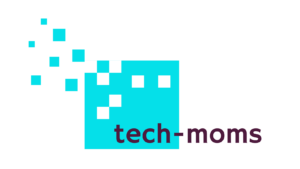Transferring your college credits to finish your degree is a smart move that can save you both time and money. Many students start their higher education journey but find themselves unable to complete it due to various life circumstances. Transferring existing credits can help you pick up where you left off and move quickly towards graduation, making the most of the work you’ve already done.
Competency-based learning and flexible study schedules enable you to customize your education to fit your life. This means you can move through the material at your own pace and focus on what you already know, testing out of subjects you’re proficient in. You’ll also make the most of your time by using online tools to stay organized and on track, further simplifying your educational journey.
By understanding these concepts and how they can work for you, you can take control of your education and push towards finishing your degree efficiently. Whether you’re balancing a job, family, or other commitments, the right strategies can make it possible for you to achieve your academic goals.
Understanding Competency-Based Learning for Faster Degree Completion
Competency-based learning is an innovative approach that focuses on students demonstrating mastery of specific skills or knowledge areas rather than spending a fixed amount of time in class. This method allows you to move through your coursework at your own pace. If you already understand a topic, you can take an assessment to prove your knowledge and move on to the next subject. This flexibility can significantly speed up the time it takes to complete your degree.
One of the biggest advantages of competency-based learning is that it accommodates different learning styles and schedules. You can study when it suits you best, whether that’s late at night after work or during weekends. By enabling you to progress as soon as you’re ready, rather than waiting for the next semester or class schedule, competency-based learning can shorten the path to graduation. This is particularly beneficial for students who have family or job commitments and need an educational program that adapts to their life.
Tips for Effectively Transferring College Credits
Transferring your college credits effectively can save you both time and money. The first step is to gather all your transcripts from previous institutions. Having all your academic records in one place will make it easier to determine which credits can be transferred. Most schools have guidelines on which credits they accept, so it’s essential to review this information before applying. Make sure to find out the maximum number of credits that can be transferred to your new program.
Next, consult with an academic advisor to understand the best way to transfer your credits. Advisors can help you identify which of your previous courses match the requirements of your new degree program. They may also offer insights on how to fill in any gaps with minimal additional coursework. It’s crucial to keep open communication with the institution you’re transferring to, as they can provide specific instructions and support throughout the process. Following these tips can streamline your transfer process and make your path to graduation smoother and quicker.
Creating a Flexible Study Schedule That Works for You
Balancing school, work, and personal life can be challenging. One way to manage this is by creating a flexible study schedule. Start by identifying when you are most productive. Some people focus better in the morning, while others do their best work at night. Arrange your study time around these peak periods to maximize your efficiency.
Next, break your study sessions into smaller, manageable chunks. Instead of trying to tackle everything in one go, divide your tasks into smaller segments. For example, you might study for 25 minutes, take a five-minute break, and then start again. This helps to keep your mind fresh and prevents burnout. Write down your schedule and stick to it as closely as possible while allowing some flexibility for unforeseen events.
Utilizing Online Tools to Stay On Track and Organized
Online tools can greatly help you stay organized and on track with your studies. Start with digital calendars like Google Calendar or Microsoft Outlook. These tools allow you to add important dates and deadlines, and you can set reminders to ensure you don’t miss anything. Regularly updating these calendars can keep your tasks and deadlines in sight.
Task management apps like Todoist or Trello can also be very useful. These apps let you create detailed to-do lists where you can break down your assignments into smaller tasks. You can prioritize your tasks and even set deadlines for each, making sure you’re always on top of your work. Additionally, document storage tools like Google Drive help you access your notes and assignments from anywhere, allowing you to make use of even small windows of free time.
Conclusion
Achieving a college degree while managing other responsibilities is possible with the right strategies. Understanding competency-based learning can accelerate your education, and effectively transferring college credits can save time and money. Creating a flexible study schedule helps balance your life and studies, while online tools keep you organized and on track.
At Newlane University, one of the leading online colleges in Lehi, we understand the challenges students face. That’s why we offer one of the most affordable US-accredited degrees with flexible, competency-based learning. Our programs are designed to fit into your busy life, whether you’re working, caring for a family, or both. Explore how our affordable payment plans and flexible courses can help you complete your degree efficiently.




